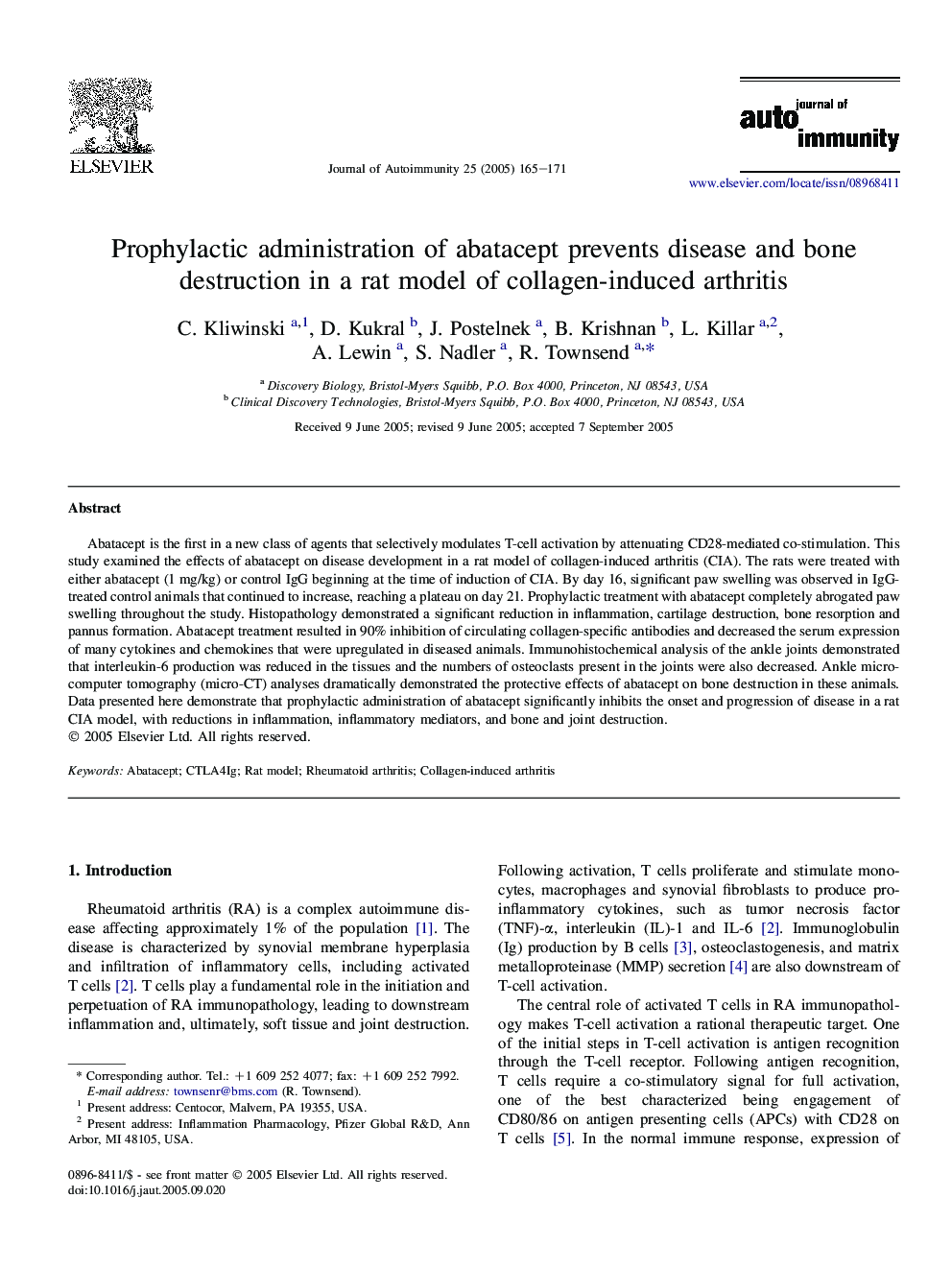| Article ID | Journal | Published Year | Pages | File Type |
|---|---|---|---|---|
| 9267889 | Journal of Autoimmunity | 2005 | 7 Pages |
Abstract
Abatacept is the first in a new class of agents that selectively modulates T-cell activation by attenuating CD28-mediated co-stimulation. This study examined the effects of abatacept on disease development in a rat model of collagen-induced arthritis (CIA). The rats were treated with either abatacept (1Â mg/kg) or control IgG beginning at the time of induction of CIA. By day 16, significant paw swelling was observed in IgG-treated control animals that continued to increase, reaching a plateau on day 21. Prophylactic treatment with abatacept completely abrogated paw swelling throughout the study. Histopathology demonstrated a significant reduction in inflammation, cartilage destruction, bone resorption and pannus formation. Abatacept treatment resulted in 90% inhibition of circulating collagen-specific antibodies and decreased the serum expression of many cytokines and chemokines that were upregulated in diseased animals. Immunohistochemical analysis of the ankle joints demonstrated that interleukin-6 production was reduced in the tissues and the numbers of osteoclasts present in the joints were also decreased. Ankle microcomputer tomography (micro-CT) analyses dramatically demonstrated the protective effects of abatacept on bone destruction in these animals. Data presented here demonstrate that prophylactic administration of abatacept significantly inhibits the onset and progression of disease in a rat CIA model, with reductions in inflammation, inflammatory mediators, and bone and joint destruction.
Related Topics
Life Sciences
Immunology and Microbiology
Immunology
Authors
C. Kliwinski, D. Kukral, J. Postelnek, B. Krishnan, L. Killar, A. Lewin, S. Nadler, R. Townsend,
